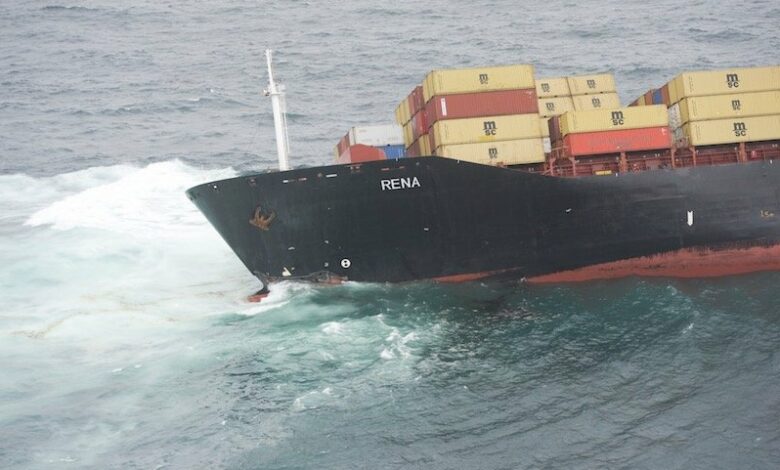The most dangerous man in the industry

This is a true story; I have slightly tweaked the names and the geography.
Quite a few years ago, I was chatting with a man who had been the finance director of what was then an up and coming airline (it arrived some years ago and remains one of the world’s best airlines). He gave me this account of something that happened when this little airline had recently bought its first jets.
He had been due to fly back to his airline’s base city and, this being a small but up and coming airline, and long before 9/11, he handed his card to the purser once cruising height had been reached and he was invited to join his colleagues on the flight deck. Which, of course, he did.
Now, my friend was the sort of man who takes an intelligent interest in all aspects of his company and who goes out of his way to be on friendly terms with as many of his colleagues as he can. And quite right, too. He was no mere bean counter. So, when he entered the flight deck, he knew everyone there. Since he also made a point of knowing something of the technical side of airline operations, his eyes scanned the three instrument panels (this was in the days of the flight engineer). To his right, on the flight engineer’s panel, four red lights were winking on and off, intermittently. Ahead of him, two altimeters were showing a remarkably high altitude for the type of plane and the trip.
“Excuse me, chaps,” he said, “but aren’t those the low oil pressure warning lights?”
“Yes, Colin.”
“And aren’t we above the normal service ceiling for this aircraft?”
“Yes, Colin.”
“I don’t want to sound picky, but could I ask why?”
Three pairs of eyes turned to him.
“You should know!”
“Er…?”
“You are the man who put in the fuel saving bonus!”
The points of this story, of course, are first: beware unintended consequences, and secondly never trust an expert.
Literary readers will recall Joseph Conrad’s Captain McWirr of the SS Nan Shan, who “could be relied upon not to improve on his instructions” – a valuable quality, perhaps.
In these straitened times, there may be found, aboard very many ships of all types, an even more dangerous man than the mere “expert improving on his instructions”.
We have the mere incompetents, of course, hired because they are cheap. We have the competent making bricks without straw because the needed spares and supplies have been red pencilled by a superintendent trying to stay within a budget, but far, far, worse than these we have the disillusioned expert.
The disillusioned expert began his sea career full of hope – the romance of the sea drew him to it, he began with a good employer and he was a diligent student. He rose in his profession; he married and started a family, and his world seemed secure. He made a point of knowing, not just what he needed to pass exams and get by, but as much as possible about his field. He would “talk shop” at the drop of a hat, and, like Belloc’s Charles Augustus Fortescue,
“Would seek, when it was in his power,
For information, twice an hour.”
Then the recession hit, he was laid off, he bounced around bad ships and worse employers, and his youthful idealism turned him into a bitter cynic, because he knew more than the superintendents did, and he knew he would never get the credit for anything that he did.
So he has switched off; he does the minimum and – this is the really dangerous bit – he knows, and will unfailingly take, all the short cuts, because why do more and because running a little risk makes life interesting.
The chickens may not come home to roost. He may never have an accident. But if he does, it won’t be a small one. It could destroy your company.
How many such men are you employing?
And when are you going to wake up and restore their faith in you?

A very timely article. In these tough times there is increased pressure on all Managers to become bean counters, and the “soft skills” needed to keep such experts engaged can be sidelined.
I’ve been told before now that “if you don’t measure it, you can’t manage it” but this seems a very weak approach; a sort of “Management by Numbers.” Some things simply cannot be reduced to a number and if one takes this approach then they risk being ignored altogether.
Excellent article Andrew. All the rules and company procedures you can write won’t protect you if they are badly constructed or simply not followed. People will violate them for a host of reasons, in pursuit of some perceived benefit. If you don’t know who is violating what and crucially ‘why’ there are violations, then you are sailing into trouble.
As you correctly point out, if Officers have no faith in the organisation, they will likely have no faith in its procedures. They will either “know better” or simply not be interested.
Management and the seafarer need to feel they are part of the same team, with shared goals and a shared understanding of how to achieve these. Without a culture such as this, disaster awaits.
This situation is not unique in the shipping industry. Economic turmoil, volatility, globalisation, technology, complexity and ambiguity are causing wave after wave of business transformations inside all of the major corporations on earth today. The people inside these corporations suffer from change fatigue, resistance, skepticism and apathy. More intelligent one’s end up becoming cynics.
What is unique in shipping industry is the low IQ of personnel at all levels – almost all the goals are self-inflicted in this industry.